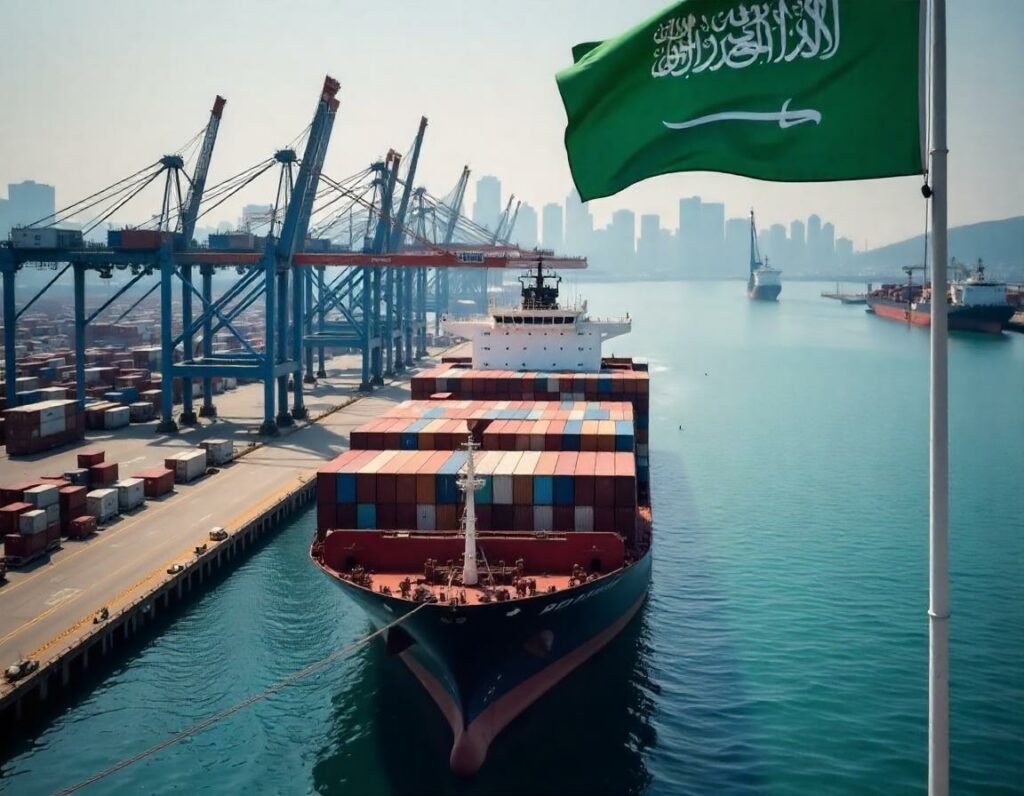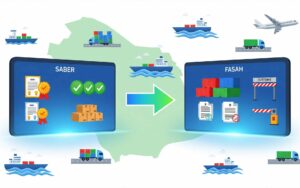The cargo shipping system in Saudi Arabia is continuously evolving to keep pace with the country’s significant and sustainable economic and commercial growth over recent years.
Saudi Arabia’s cargo shipping system is built upon regulations and policies designed to ensure the safety of goods and their timely delivery to designated locations.
Public and Private Entities Responsible for Cargo Shipping Operations in Saudi Arabia
Several entities oversee the mechanism of cargo shipping within the Kingdom, including:
1. The General Authority for Transport
The General Authority for Transport plays a pivotal role in regulating the transport and shipping sectors in Saudi Arabia. It establishes rules and guidelines for land, sea, and air shipping operations.
2. Saudi Customs
Saudi Customs imposes duties on imported goods and inspects shipments to ensure they comply with local and international standards.
3. Shipping Companies
Prominent shipping companies, such as Panglobe, offer comprehensive logistics services, including domestic and international cargo transportation (especially within GCC countries and globally). These companies also provide related services like packaging, storage, and customs clearance.
Types of Cargo Shipping in Saudi Arabia
Shipping in Saudi Arabia is categorized into three main types based on the mode of transportation:
1. Land Shipping
Land shipping is the most common method in Saudi Arabia. Goods are transported within and outside the country using trucks and trailers that rely on an extensive network of roads connecting various cities and regions.
2. Sea Shipping
Saudi Arabia maintains connections with several global and neighboring maritime ports. Goods are transported via major ports like Jeddah Islamic Port and King Abdulaziz Port in Dammam. Sea shipping is typically used for massive cargo, such as vehicles, due to its cost-effectiveness for transporting large shipments.
3. Air Shipping
While air shipping is the most expensive method, it significantly reduces delivery times. It is often used to transport perishable goods (such as fresh produce) and sensitive electronic devices.
Major Challenges Facing Saudi Arabia’s Cargo Shipping System
Despite the efficiency and facilitation of supply chain operations, the cargo shipping sector in Saudi Arabia faces several challenges, including:
1. Bureaucratic Delays
Complex bureaucratic procedures, especially during customs clearance, can delay shipment deliveries beyond their scheduled timelines.
2. Shortage of Skilled Labor
There is a constant need for more qualified and experienced professionals in logistics operations.
3. Regulatory Changes
Frequent updates to rules and regulations can impact shipping processes and operations.
Future Prospects for Saudi Arabia’s Cargo Shipping System
Governmental and private entities in the logistics and shipping sectors are striving to improve their tools and overcome obstacles. These efforts aim to align with Saudi Vision 2030 by:
1. Digital Transformation
Integrating digital technologies to enhance the efficiency of shipping operations and simplify procedures.
2. Infrastructure Development
Building, upgrading, and modernizing infrastructure such as roads, ports, and airports.
3. Encouraging Investments
Attracting local and international investments to boost the growth of this massive commercial sector.





